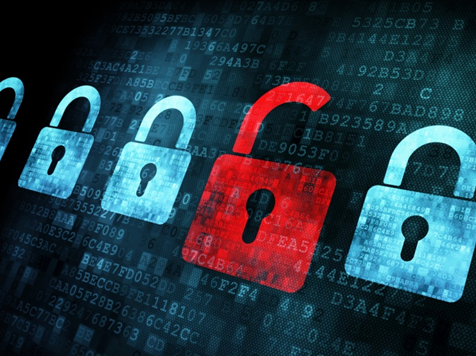It seems like not a day goes by without the entire world being once again reminded about the dangers hackers pose to our collective and individual online security. From breaches that target massive corporations and governments to smaller-scale attacks that seek out individuals, the threat is real, and it continues to evolve. Thankfully, help evolves as well, so that hope remains. From employing antivirus software to avoiding public Wi-Fi like the plague, here are seven simple ways you can keep yourself at least a little but safer from hackers.
1. Get Antivirus Software
It doesn’t matter whether you use the Internet to make purchases, read about surfing, or Netflix, you need to have good antivirus software installed on your devices. The principle is simple: Like the laziest of thieves, two-bit hackers rely on people not locking their doors in order to gain access to their information. Make breaking into your computer or phone a more difficult job at the very least, by locking the door and putting up a fence.
2. Never Use Free Public Wi-Fi
Free and public Wi-Fi always seems like such a good idea when you’re away from your trusted networks. However, because they aren’t protected and anyone can join them, they’re the perfect access point for people with nefarious goals. On those rare occasions where you can’t help yourself, be sure to never log on to any site of value. In other words, it’s OK to read ESPN.com, but you should steer clear of logging in to your bank.
3. Clear Your History
Internet browsers are in the business of storing all the sites you visit and what you’ve done on them. To keep anyone from stealing a detailed account of your activities in order to use it against you later, it’s best to clear your history at the end of your last browsing session each day. From your phone to your tablet to your desktop, make it a habit to wipe the slate clean at the end of each day.
4. Use HTTPS
An acronym for “hyper-text transfer protocol secure,” HTTPS is just like using HTTP when you type in an Internet address but with one major difference: HTTPS offers an added layer of both security and encryption while you’re browsing online. Any and all communication that takes place between a site that can support HTTPS and a user of that site is encrypted. You can also trust that the information on the site has been authenticated. In other words, sites that can be accessed via HTTPS ensure that the site you’re visiting is not a dummy site set up to steal information from you.
5. Mind Your Passwords
It’s no fun to change your passwords all the time, but doing so really will keep you safer. While there are password managers online to help you keep track of all the passwords and IDs across all the sites you use, another good and safe route is to just record them on pen and paper. So far, it’s impossible for even the world’s best hackers to hack a piece of paper, but if you have anyone at work or home who can’t be trusted, you’ll need to keep the paper in a locked location.
6. Don’t Link Accounts
Linking accounts can provide quicker access to sites, purchases, and the like, and in today’s constantly hurrying world that can seem like a great advantage. However, to a hacker, it just makes leaping from one point of access to another in order to get more of your information that much easier. As tempting as it is to sign in to make purchases with your Facebook profile or your Google+ account, the trouble that awaits you if a hacker makes you a target isn’t worth it. Sign up with a separate account, record the ID and password with pen and paper, and only lose a few minutes in the process. It’s a much better option than malware, identity theft, or blackmail.
7. Misinform
When you’re setting up the answers to the security questions that are so ubiquitous across the Web, they aren’t on par with taking an oath. Instead of honestly answering questions about your mother’s maiden name, where you met your spouse, and the name of your first pet, misinform. By doing so, you keep this precious information from reaching the wrong hands in the event of a security breach. Worried you won’t remember your answers? Write them down for each account like you do your passwords — in pen and paper — and put them under lock and key.
In today’s threat-filled online world, it’s essential that you go above and beyond to protect yourself when you get online. Stay safe — or at least safer — by following these seven tips.

